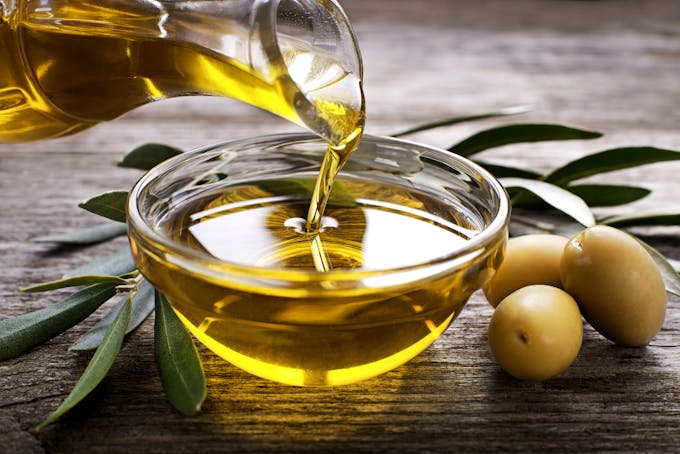Coconut Oil vs Olive Oil Which is Better

Keto Strategy Tips
Expert advice on maintaining a successful keto lifestyle
Learn simple strategies to overcome common challenges and stay on track
Stay motivated with tips and techniques to keep you focused on your keto journey
Practical cutout wallet guide for quick reference on keto-friendly choices and strategies

Keto Strategy Tips
Expert advice on maintaining a successful keto lifestyle
Learn simple strategies to overcome common challenges and stay on track
Stay motivated with tips and techniques to keep you focused on your keto journey
Practical cutout wallet guide for quick reference on keto-friendly choices and strategies

Keto Strategy Tips
Expert advice on maintaining a successful keto lifestyle
Learn simple strategies to overcome common challenges and stay on track
Stay motivated with tips and techniques to keep you focused on your keto journey
Practical cutout wallet guide for quick reference on keto-friendly choices and strategies

Keto Strategy Tips
Expert advice on maintaining a successful keto lifestyle
Learn simple strategies to overcome common challenges and stay on track
Stay motivated with tips and techniques to keep you focused on your keto journey
Practical cutout wallet guide for quick reference on keto-friendly choices and strategies

Keto Strategy Tips
Expert advice on maintaining a successful keto lifestyle
Learn simple strategies to overcome common challenges and stay on track
Stay motivated with tips and techniques to keep you focused on your keto journey
Practical cutout wallet guide for quick reference on keto-friendly choices and strategies

Keto Strategy Tips
Expert advice on maintaining a successful keto lifestyle
Learn simple strategies to overcome common challenges and stay on track
Stay motivated with tips and techniques to keep you focused on your keto journey
Practical cutout wallet guide for quick reference on keto-friendly choices and strategies

Keto Strategy Tips
Expert advice on maintaining a successful keto lifestyle
Learn simple strategies to overcome common challenges and stay on track
Stay motivated with tips and techniques to keep you focused on your keto journey
Practical cutout wallet guide for quick reference on keto-friendly choices and strategies

Keto Strategy Tips
Expert advice on maintaining a successful keto lifestyle
Learn simple strategies to overcome common challenges and stay on track
Stay motivated with tips and techniques to keep you focused on your keto journey
Practical cutout wallet guide for quick reference on keto-friendly choices and strategies

Keto Strategy Tips
Expert advice on maintaining a successful keto lifestyle
Learn simple strategies to overcome common challenges and stay on track
Stay motivated with tips and techniques to keep you focused on your keto journey
Practical cutout wallet guide for quick reference on keto-friendly choices and strategies

Keto Strategy Tips
Expert advice on maintaining a successful keto lifestyle
Learn simple strategies to overcome common challenges and stay on track
Stay motivated with tips and techniques to keep you focused on your keto journey
Practical cutout wallet guide for quick reference on keto-friendly choices and strategies

Keto Strategy Tips
Expert advice on maintaining a successful keto lifestyle
Learn simple strategies to overcome common challenges and stay on track
Stay motivated with tips and techniques to keep you focused on your keto journey
Practical cutout wallet guide for quick reference on keto-friendly choices and strategies

Keto Strategy Tips
Expert advice on maintaining a successful keto lifestyle
Learn simple strategies to overcome common challenges and stay on track
Stay motivated with tips and techniques to keep you focused on your keto journey
Practical cutout wallet guide for quick reference on keto-friendly choices and strategies

Keto Strategy Tips
Expert advice on maintaining a successful keto lifestyle
Learn simple strategies to overcome common challenges and stay on track
Stay motivated with tips and techniques to keep you focused on your keto journey
Practical cutout wallet guide for quick reference on keto-friendly choices and strategies

Keto Strategy Tips
Expert advice on maintaining a successful keto lifestyle
Learn simple strategies to overcome common challenges and stay on track
Stay motivated with tips and techniques to keep you focused on your keto journey
Practical cutout wallet guide for quick reference on keto-friendly choices and strategies

Keto Strategy Tips
Expert advice on maintaining a successful keto lifestyle
Learn simple strategies to overcome common challenges and stay on track
Stay motivated with tips and techniques to keep you focused on your keto journey
Practical cutout wallet guide for quick reference on keto-friendly choices and strategies

Keto Strategy Tips
Expert advice on maintaining a successful keto lifestyle
Learn simple strategies to overcome common challenges and stay on track
Stay motivated with tips and techniques to keep you focused on your keto journey
Practical cutout wallet guide for quick reference on keto-friendly choices and strategies

Keto Strategy Tips
Expert advice on maintaining a successful keto lifestyle
Learn simple strategies to overcome common challenges and stay on track
Stay motivated with tips and techniques to keep you focused on your keto journey
Practical cutout wallet guide for quick reference on keto-friendly choices and strategies

Keto Strategy Tips
Expert advice on maintaining a successful keto lifestyle
Learn simple strategies to overcome common challenges and stay on track
Stay motivated with tips and techniques to keep you focused on your keto journey
Practical cutout wallet guide for quick reference on keto-friendly choices and strategies

Keto Strategy Tips
Expert advice on maintaining a successful keto lifestyle
Learn simple strategies to overcome common challenges and stay on track
Stay motivated with tips and techniques to keep you focused on your keto journey
Practical cutout wallet guide for quick reference on keto-friendly choices and strategies

How to Read Your Body
Learn to recognize common symptoms and uncover their underlying health issues
Understand the signs of nutrient deficiencies to manage your health
Explore the four metabolic body types and the core factors that influence them
Interpret your body's signals from head to toe to identify potential health concerns

How to Read Your Body
Learn to recognize common symptoms and uncover their underlying health issues
Understand the signs of nutrient deficiencies to manage your health
Explore the four metabolic body types and the core factors that influence them
Interpret your body's signals from head to toe to identify potential health concerns

How to Read Your Body
Learn to recognize common symptoms and uncover their underlying health issues
Understand the signs of nutrient deficiencies to manage your health
Explore the four metabolic body types and the core factors that influence them
Interpret your body's signals from head to toe to identify potential health concerns

How to Read Your Body
Learn to recognize common symptoms and uncover their underlying health issues
Understand the signs of nutrient deficiencies to manage your health
Explore the four metabolic body types and the core factors that influence them
Interpret your body's signals from head to toe to identify potential health concerns

How to Read Your Body
Learn to recognize common symptoms and uncover their underlying health issues
Understand the signs of nutrient deficiencies to manage your health
Explore the four metabolic body types and the core factors that influence them
Interpret your body's signals from head to toe to identify potential health concerns

How to Read Your Body
Learn to recognize common symptoms and uncover their underlying health issues
Understand the signs of nutrient deficiencies to manage your health
Explore the four metabolic body types and the core factors that influence them
Interpret your body's signals from head to toe to identify potential health concerns

How to Read Your Body
Learn to recognize common symptoms and uncover their underlying health issues
Understand the signs of nutrient deficiencies to manage your health
Explore the four metabolic body types and the core factors that influence them
Interpret your body's signals from head to toe to identify potential health concerns

How to Read Your Body
Learn to recognize common symptoms and uncover their underlying health issues
Understand the signs of nutrient deficiencies to manage your health
Explore the four metabolic body types and the core factors that influence them
Interpret your body's signals from head to toe to identify potential health concerns

How to Read Your Body
Learn to recognize common symptoms and uncover their underlying health issues
Understand the signs of nutrient deficiencies to manage your health
Explore the four metabolic body types and the core factors that influence them
Interpret your body's signals from head to toe to identify potential health concerns

How to Read Your Body
Learn to recognize common symptoms and uncover their underlying health issues
Understand the signs of nutrient deficiencies to manage your health
Explore the four metabolic body types and the core factors that influence them
Interpret your body's signals from head to toe to identify potential health concerns

How to Read Your Body
Learn to recognize common symptoms and uncover their underlying health issues
Understand the signs of nutrient deficiencies to manage your health
Explore the four metabolic body types and the core factors that influence them
Interpret your body's signals from head to toe to identify potential health concerns

How to Read Your Body
Learn to recognize common symptoms and uncover their underlying health issues
Understand the signs of nutrient deficiencies to manage your health
Explore the four metabolic body types and the core factors that influence them
Interpret your body's signals from head to toe to identify potential health concerns

How to Read Your Body
Learn to recognize common symptoms and uncover their underlying health issues
Understand the signs of nutrient deficiencies to manage your health
Explore the four metabolic body types and the core factors that influence them
Interpret your body's signals from head to toe to identify potential health concerns

How to Read Your Body
Learn to recognize common symptoms and uncover their underlying health issues
Understand the signs of nutrient deficiencies to manage your health
Explore the four metabolic body types and the core factors that influence them
Interpret your body's signals from head to toe to identify potential health concerns

How to Read Your Body
Learn to recognize common symptoms and uncover their underlying health issues
Understand the signs of nutrient deficiencies to manage your health
Explore the four metabolic body types and the core factors that influence them
Interpret your body's signals from head to toe to identify potential health concerns

How to Read Your Body
Learn to recognize common symptoms and uncover their underlying health issues
Understand the signs of nutrient deficiencies to manage your health
Explore the four metabolic body types and the core factors that influence them
Interpret your body's signals from head to toe to identify potential health concerns

How to Read Your Body
Learn to recognize common symptoms and uncover their underlying health issues
Understand the signs of nutrient deficiencies to manage your health
Explore the four metabolic body types and the core factors that influence them
Interpret your body's signals from head to toe to identify potential health concerns

How to Read Your Body
Learn to recognize common symptoms and uncover their underlying health issues
Understand the signs of nutrient deficiencies to manage your health
Explore the four metabolic body types and the core factors that influence them
Interpret your body's signals from head to toe to identify potential health concerns

How to Read Your Body
Learn to recognize common symptoms and uncover their underlying health issues
Understand the signs of nutrient deficiencies to manage your health
Explore the four metabolic body types and the core factors that influence them
Interpret your body's signals from head to toe to identify potential health concerns
Coconut oil and olive oil have received much attention for their health benefits in recent years and are two of the most popular cooking oils on the market.
Let’s talk about why coconut and olive oils are heart-healthy, keto-friendly fats that deserve a spot in your kitchen.

Benefits of coconut oil
Coconut oil is extracted from the meat of mature coconuts. It's a tropical oil with a light, delicate flavor and is very heat stable, making it perfect for cooking, baking, and pan-frying—and it’s keto friendly.
What about coconut milk, is coconut milk keto? The answer is yes, coconut milk is also keto-friendly. In fact, coconut milk and coconut oil are both great for the keto diet. Coconut milk is a great source of healthy fats, and it’s also low in carbs.
Here are some of coconut oil's health benefits:
Promotes heart health
You may have heard coconut oil is high in saturated fat and not heart-healthy—this isn’t true. Research suggests that coconut oil increases levels of HDL, the good cholesterol protecting your arteries and heart. Watch this video to learn more about the misconceptions about coconut oil.
Boosts immunity
Coconut oil is a rich source of lauric acid, a fatty acid with profound health benefits. Lauric acid supports immune function, and its antimicrobial properties protect from harmful microorganisms like E.coli, H-pylori, and common stomach bug viruses.

Supports brain health
Coconut oil contains medium-chain triglycerides (MCTs), a saturated fat with significant benefits for brain health. Compared to other fats, MCTs are more easily digested and quickly turned into ketones in the liver.
The brain prefers ketones to sugar as a fuel source, and MCTs have been linked to increased brain function and cognition.
Increases energy
Coconut oil is a good fuel source for your body. MCTs can be readily utilized by your liver and are turned rapidly into energy in the form of ketones, the preferred fuel source for your heart, liver, and brain.
MCTs are easily absorbed and digested, making coconut oil a great fat to use if you experience sluggish fat digestion or had gallbladder surgery. Watch the video below to learn more about coconut oil’s health benefits.
What type of coconut oil is best?
Choose virgin coconut oil, which has been minimally processed. While refined coconut oil contains the same amounts of fatty acids as virgin coconut oil, it has been bleached and chemically treated, lowering the quality of the oil and affecting its taste.
Benefits of olive oil
Olive oil is made by extracting the oil from ripe olives. It has a fruity, almost peppery taste that is perfect for salad dressings, dips, and light sauteing. Olive oil is a staple of the Mediterranean diet and has been extensively studied for its health benefits.
Here are some of olive oil’s health benefits:
Supports heart health
Regular olive oil consumption is associated with a lower incidence of coronary heart disease.
Olive oil is a rich source of polyphenols, which are natural substances with significant heart health benefits, including:
Lower risk of heart disease
Lower total cholesterol
Lower low-density lipoprotein (LDL) cholesterol levels
Almost 80% of olive oil is monounsaturated fat, like oleic acid, which supports a healthy heart and may even have a beneficial impact on genes linked to cancer.
Lowers inflammation
Olive oil is a potent anti-inflammatory food despite being high in omega-6 fatty acids. Typically, omega-6 fatty acids cause inflammation, but the polyphenols in olive oil have powerful antioxidant, anti-inflammatory, and immunomodulatory properties.
Oleocanthal, a polyphenol found only in olive oil, has been found to have strong anti-inflammatory effects, lowering inflammation similar to ibuprofen.
Protects from cellular damage
Olive oil is a rich source of antioxidants that protect your body from oxidative damage to DNA, proteins, and cells. Antioxidants in olive oil reduce the risk of prostate and colon cancer, lower the risk of chronic diseases, and have been found to slow visible signs of aging.

What type of olive oil is best?
To get the most health benefits, choose cold-pressed extra virgin olive oil. Extra virgin oil contains the most amounts of polyphenols and has fantastic flavor.
Avoid refined olive oils that are heavily processed. These oils are typically lighter in color and don’t have the same taste compared to extra virgin olive oil.
Coconut oil and olive oil compared
Both olive oil and coconut oil are keto-friendly fats and contain about the same number of calories.
Both oils provide health benefits, and neither can be described as the healthier option. Including both oils in your keto diet offers a variety of healthy fats with a wide range of benefits for your heart, brain, and overall well-being.
Coconut oil has a neutral flavor and can safely be heated to high temperatures, making it an excellent oil for roasting, frying, and baking.
Olive oil contains health-promoting monounsaturated fatty acids, and its distinct flavor adds depth to salads, soups, and vegetables. The fatty acids in olive oil have powerful anti-inflammatory effects and protect DNA, protein, and cells from oxidative damage.

Key takeaways
Olive oil and coconut oil are keto-friendly cooking oils with research-backed health benefits. Both oils support healthy cholesterol levels and lower the risk of heart disease.
Coconut and olive oils both contain healthy fats, and there is no clear winner as to which one is the healthier option. Including both oils in your keto diet benefits your heart health, lowers inflammation, and protects you from harmful microbes.
To get the most health benefits and best flavor, choose unrefined oils like extra virgin olive oil and virgin coconut oil that have been minimally processed.
FAQs
1. Is coconut oil healthy?
Yes, coconut oil is a healthy cooking oil. It contains both saturated fats and medium-chain fats, and research found that coconut oil intake supports healthy cholesterol levels and benefits brain functioning.
Coconut oil also is a rich source of lauric acid, a natural antimicrobial fatty acid that helps protect you from harmful infections like H-pylori and E. coli.
2. Is olive oil healthy?
Yes, olive oil is a healthy oil. It’s the primary fat of the heart-healthy Mediterranean diet, and regular intake is linked to reduced risk of heart disease and other chronic health conditions.
Olive oil contains monounsaturated fats and is a rich source of polyphenols that balance cholesterol production, lower inflammation, and protect the cells and DNA from oxidative damage linked to aging.
3. Which is better, coconut oil or olive oil?
There is no clear winner when comparing coconut oil vs. olive oil. Both are heart-healthy, good fats with many health benefits.
While coconut oil contains more saturated fat and lauric acid, olive oil is rich in polyphenols and monounsaturated fats. Rather than choosing just one of these oils, regularly including both oils in your cooking provides the most benefit for your health.
4. Can I use coconut oil for cooking?
Yes, coconut oil is an excellent choice for cooking. It has a neutral flavor and can safely be heated to high temperatures making it suitable for baking, roasting, frying, and sauteing.
Because coconut oil contains saturated fat, it’s excellent for keto baking and keto desserts. Saturated fats provide structure and add a pleasant texture to keto fat bombs (here is a tasty Coconut Pecan Fudge Fat Bomb recipe).
5. Is eating coconut oil every day healthy?
Coconut oil is healthy if consumed as part of a healthy, balanced keto diet. Coconut oil contains saturated fats, which have previously been associated with an increased risk of heart disease. However, the claim that saturated fat intake is bad for heart health isn’t accurate.
In fact, coconut oil has been found to improve heart health by supporting healthy cholesterol levels. Watch here to understand more about the common misconceptions about coconut oil.
6. Is olive oil good for heart health?
Olive oil has been extensively studied for its ability to support heart health. Olive oil is high in polyunsaturated fats, and regular intake is linked to reduced risk of heart disease.
Olive oil is a rich source of polyphenols and antioxidants, protecting your blood vessels from damage, lowering inflammation, and reducing the risk of certain cancers.
7. Is olive oil keto-friendly?
Yes, olive oil is keto-friendly. To benefit from the best flavor and optimal nutrition, avoid refined olive oil that has been heavily processed and opt for extra virgin olive oil instead.
8. Is coconut oil keto-friendly?
Yes, coconut oil is keto-friendly. Avoid chemically-treated and bleached-refined coconut oil and choose virgin coconut oils for maximum health benefits and the best flavor.
9. Can I have coconut oil while fasting?
No. Coconut oil is keto-friendly, but you should avoid having coconut oil while fasting. Coconut oil is high in calories and will break your intermittent fast. Only have coconut oil during your eating window.
Up Next:
Previous blog
Amazing Benefits of Prolonged FastingTags

Popular
08/21/2024
55K views
02/23/2025
46.3K views
11/18/2024
277.5K views
03/18/2024
11/21/2022




